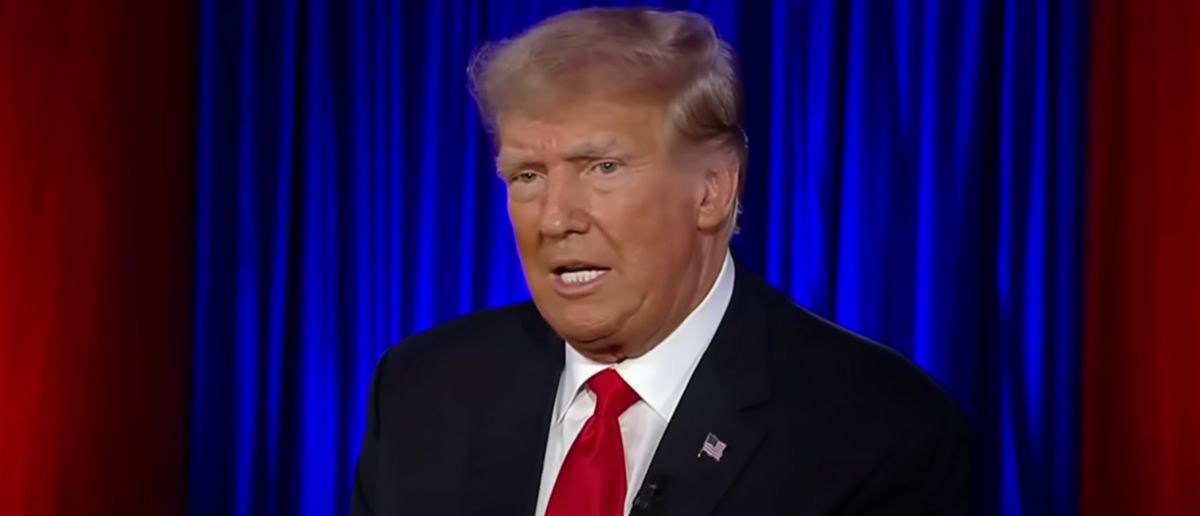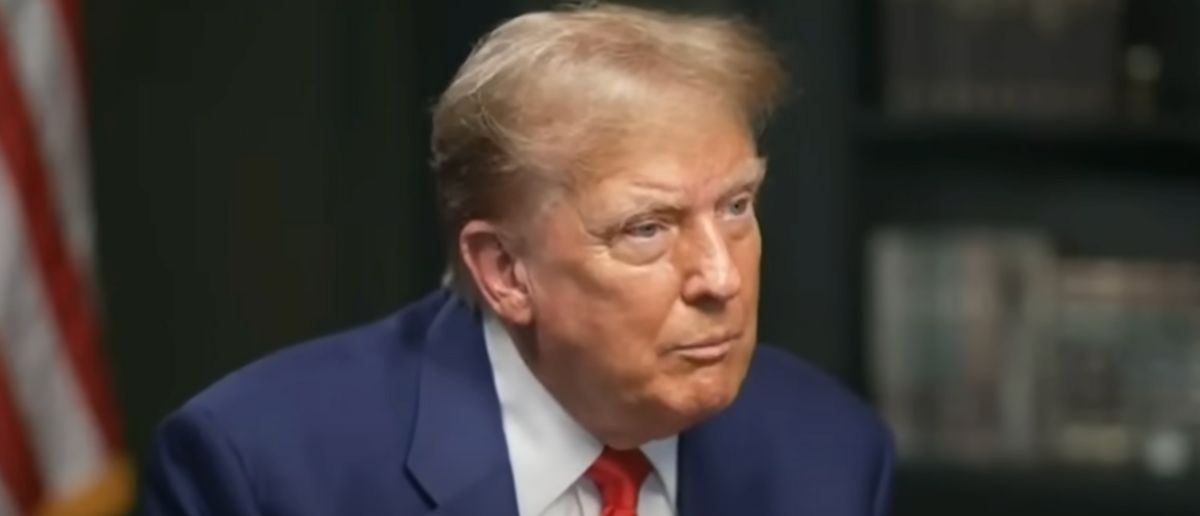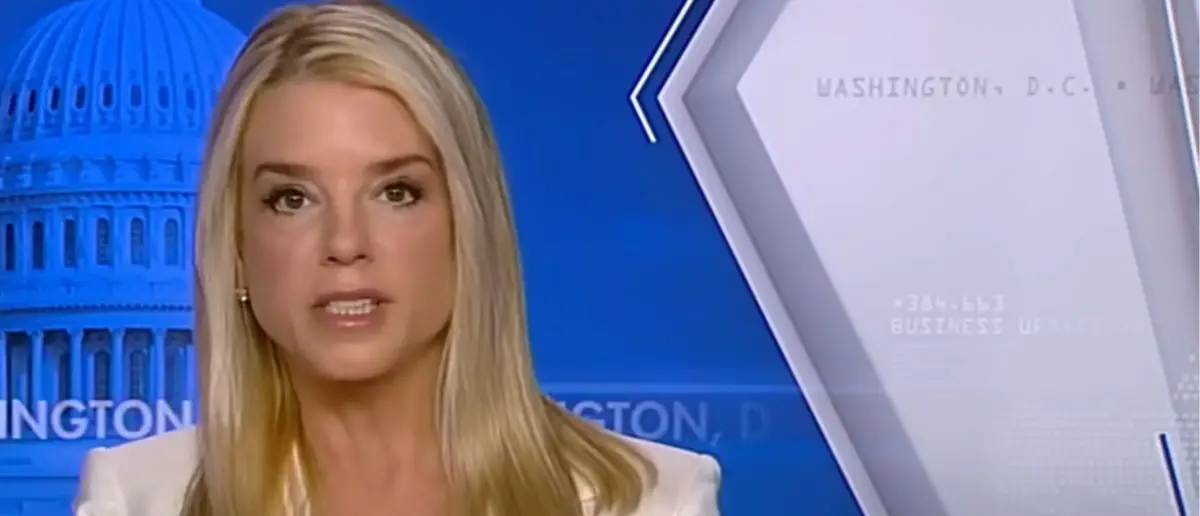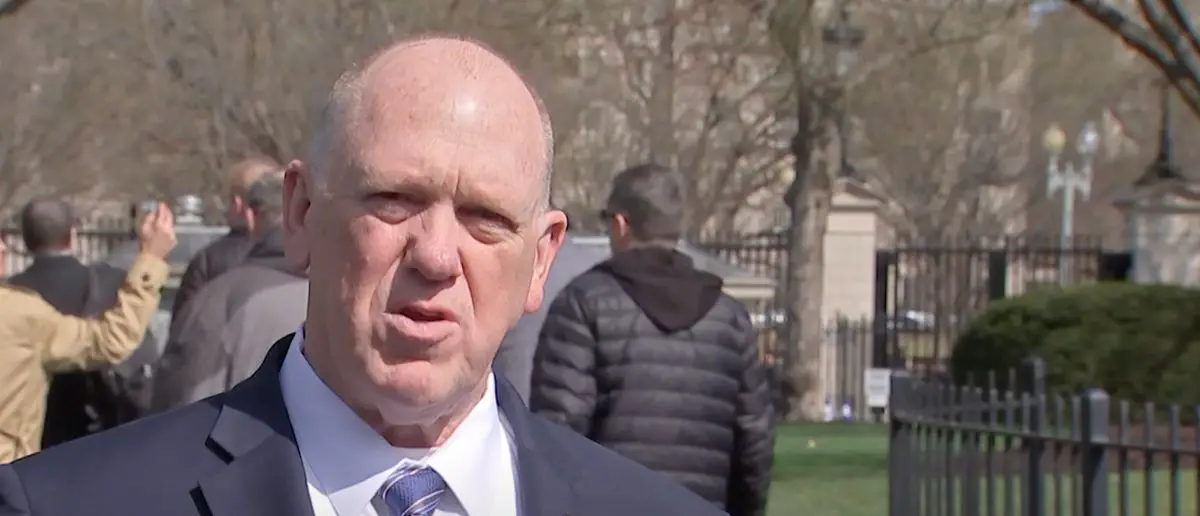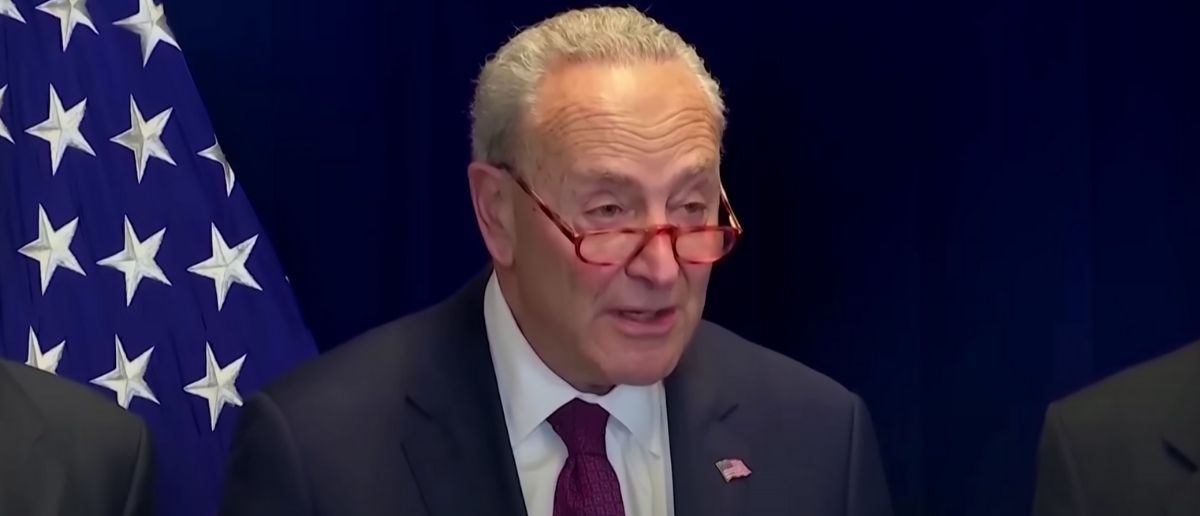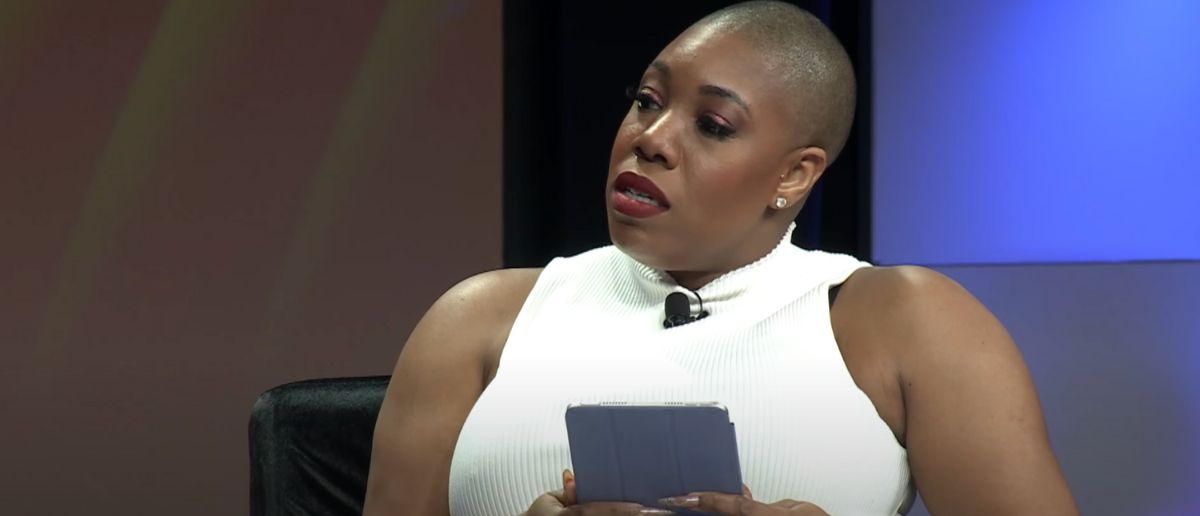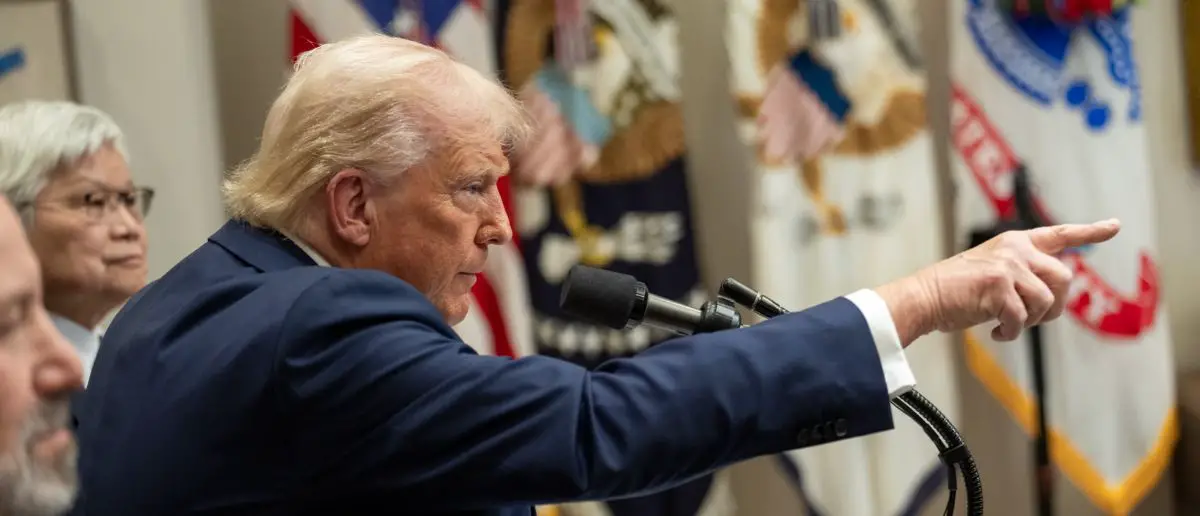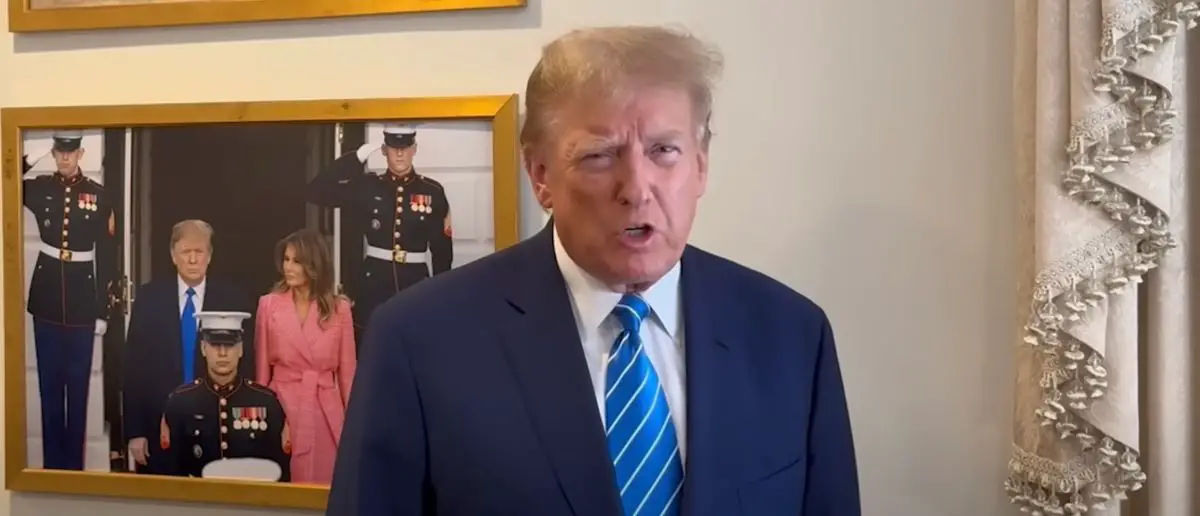Prominent judge smacked with surprise filing from Trump administration
The battle between the Judicial and Executive branches is getting hot. The Trump team is digging in their heels.
Because a prominent federal judge was just smacked with a surprise filing from the Trump admin.
Trump Administration Challenges Federal Judge’s Block on Gang Member Deportations
The Trump administration found itself in a legal standoff this week after a federal judge intervened in its efforts to deport alleged gang members under a rarely used wartime authority. On Monday, the administration formally requested that U.S. District Judge James Boasberg, who issued the initial ruling, be removed from the case. Boasberg, appointed by former President Barack Obama and currently the top federal judge in Washington, D.C., had swiftly blocked President Donald Trump’s deportation initiative targeting suspected members of the violent Tren de Aragua gang and other criminal illegal migrants just two days earlier, on Saturday.
The Department of Justice (DOJ) escalated the matter by filing an appeal with the U.S. Court of Appeals for the D.C. Circuit. In its filing, the DOJ not only contested Boasberg’s order but also sought his reassignment, arguing that his handling of the case jeopardized national security and encroached on presidential powers.
Deputy Assistant Attorney General Drew Ensign spearheaded the appeal, asserting, “The district court’s hasty public inquiry into these sensitive national security matters — with no contemplated protections against disclosure of operational details —underscores the urgency of immediate relief from this Court, including an immediate administrative stay that would allow further briefing to unfold in an orderly and appropriate manner and prevents the district court from further efforts to interfere with President Trump’s core Article II authorities, including the conduct of foreign policy.”
Ensign further criticized the judge’s procedural approach, stating, “This Court should also immediately reassign this case to another district court judge given the highly unusual and improper procedures — e.g. certification of a class action involving members of a designated foreign terrorist organization in less than 18 hours with no discovery and no briefing from the Government — that have been employed in the district court proceedings to date.”
The controversy stems from Trump’s decision on Saturday to invoke the Alien Enemies Act, a wartime law dormant since World War II. This move granted him expanded authority to fast-track the deportation of confirmed and suspected Tren de Aragua members, a transnational criminal syndicate that emerged from a Venezuelan prison and has since established a presence in the United States. The gang is allegedly linked to a string of brutal crimes nationwide, prompting the administration to act decisively.
However, the White House’s strategy faced immediate resistance. Democracy Forward and the American Civil Liberties Union (ACLU), two groups with a history of opposing Trump administration policies, filed a lawsuit challenging the use of the Alien Enemies Act. Judge Boasberg responded by issuing a temporary injunction, halting the deportations and ordering the return of any migrants already en route. Despite this directive, logistical delays meant the order arrived too late for several deportation flights.
White House spokeswoman Karoline Leavitt announced on Sunday that nearly 300 Tren de Aragua gang members had been apprehended and sent to El Salvador, where an agreement with the Trump administration allows deportees to be detained in the nation’s expansive mega-prison.
Leavitt minced no words in describing the gang’s threat. “TDA [Tren de Aragua] is one of the most violent and ruthless terrorist gangs on planet earth,” she said. “They r*pe, maim and m*rder for sport. TDA is responsible for some of the most heinous crimes that have occurred on US soil in recent years, including the m*rders of Laken Riley and Jocelyn Nungaray.”
El Salvador’s President Nayib Bukele confirmed the operation’s success via social media on Sunday, noting that 238 Tren de Aragua members and 23 MS-13 gang affiliates had arrived in his country. These individuals were promptly transferred to the Terrorism Confinement Center, a sprawling facility housing thousands of criminals and suspected gang members from across the globe.
Today, the first 238 members of the Venezuelan criminal organization, Tren de Aragua, arrived in our country. They were immediately transferred to CECOT, the Terrorism Confinement Center, for a period of one year (renewable).
The United States will pay a very low fee for them,… pic.twitter.com/tfsi8cgpD6
— Nayib Bukele (@nayibbukele) March 16, 2025
Back in the U.S., the Trump administration expressed outrage at Boasberg’s intervention. In a motion for a stay, the DOJ labeled the judge’s ruling “unprecedented” and argued that he lacked the authority to override the executive branch’s actions.
“This Court should halt this massive, unauthorized imposition on the Executive’s authority to remove people that Defendants had determined to be members of TdA, a group the President and the Secretary of State have found to be a threat to national security,” the administration contended. “This Court should halt this unprecedented intrusion upon the Executive’s authority to remove dangerous aliens who pose grave threats to the American people.”
The dispute has also sparked political repercussions. Texas Republican Representative Brandon Gill announced on Saturday his intent to file articles of impeachment against Boasberg, branding him an “activist” judge for his swift ruling against the administration’s deportation efforts.
With the DOJ pushing for Boasberg’s removal and an expedited appeals process, the Trump administration remains steadfast in its mission to expel what it deems a clear and present danger to American safety.
🚨Scott Jennings takes on hostile CNN panel looking for any reason possible to oppose Trump’s deportation of violent illegal gang members:
Jennings: It's quite clear the president believes he is keeping the United States and its citizens safe from non-citizens, who are in the… pic.twitter.com/hfUGO2BnLg
— Western Lensman (@WesternLensman) March 18, 2025
Stay tuned to the DC Daily Journal.

